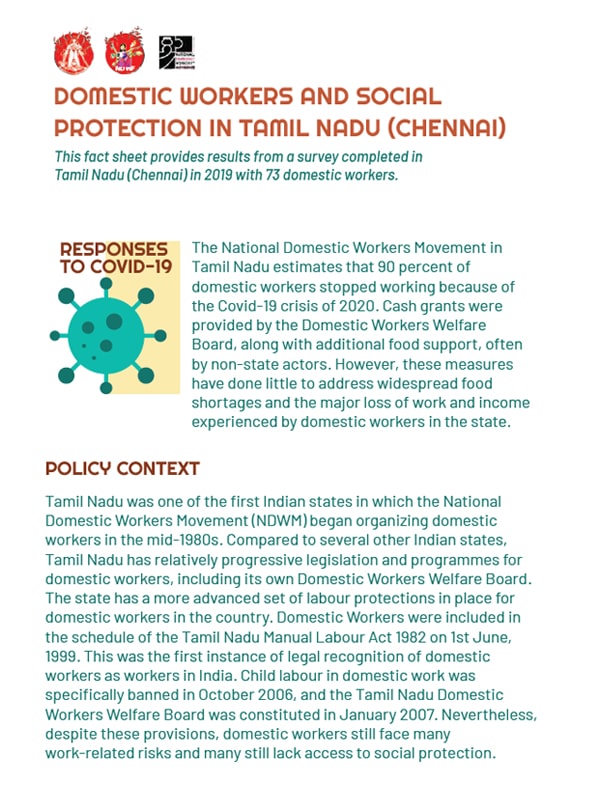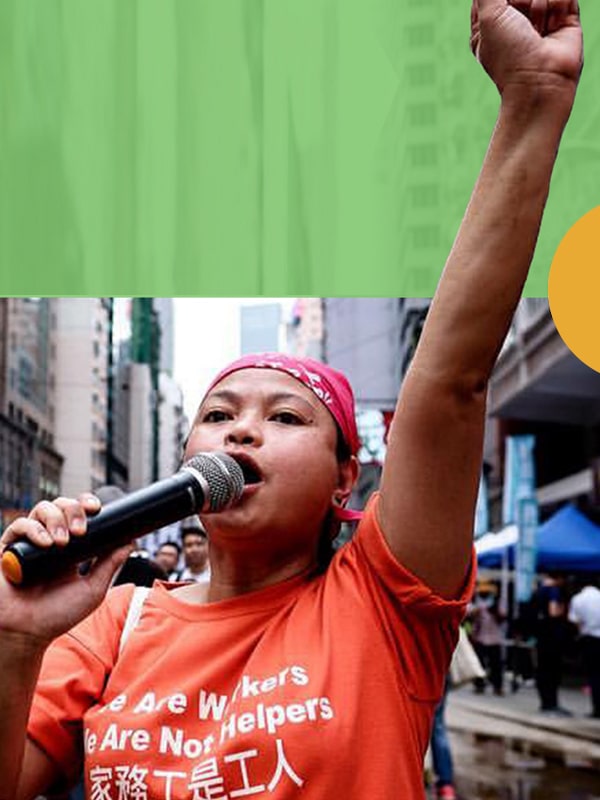This fact sheet provides results from a survey completed in Tamil Nadu (Chennai) in 2019 with 73 domestic workers.

The National Domestic Workers Movement in Tamil Nadu estimates that 90 percent of domestic workers stopped working because of the Covid-19 crisis of 2020. Cash grants were provided by the Domestic Workers Welfare Board, along with additional food support, often by non-state actors. However, these measures have done little to address widespread food shortages and the major loss of work and income experienced by domestic workers in the state.
Policy context
Tamil Nadu was one of the first Indian states in which the National Domestic Workers Movement (NDWM) began organizing domestic workers in the mid-1980s. Compared to several other Indian states, Tamil Nadu has relatively progressive legislation and programmes for domestic workers, including its own Domestic Workers Welfare Board. The state has a more advanced set of labour protections in place for domestic workers in the country. Domestic Workers were included in the schedule of the Tamil Nadu Manual Labour Act 1982 on 1st June, 1999. This was the first instance of legal recognition of domestic workers as workers in India. Child labour in domestic work was specifically banned in October 2006, and the Tamil Nadu Domestic Workers Welfare Board was constituted in January 2007. Nevertheless, despite these provisions, domestic workers still face many work-related risks and many still lack access to social protection.
Download here




